YotaPhone Idea Camp: together we are power!
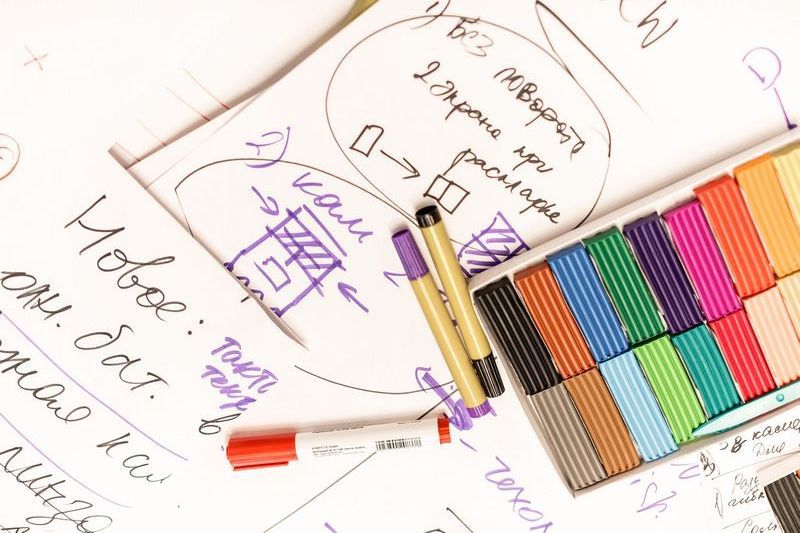
One of the principles that guides our company is the focus on creating devices with unique features and functions.
The mistake of many of our colleagues in the shop is that customer reviews are often refined in hindsight. We are confident that an outstanding product can be made together with users: from the very beginning of the development of a device, it is to put into it precisely those ideas and wishes that will make the “digital” life of their users more saturated and interesting.
')
We are convinced that a joint creative search will allow us to offer unique features and capabilities that will be demanded by many. And our task is to create a platform in which everyone can offer and discuss his idea with others, no matter how unrealizable or strange it may seem.
Therefore, we have decided to launch a project for the collective work on new ideas and scenarios for using devices. It will include various online and offline events.
The first such event - YotaPhone Idea Camp - was held at the end of last week. About what came of it, we want to tell you today.
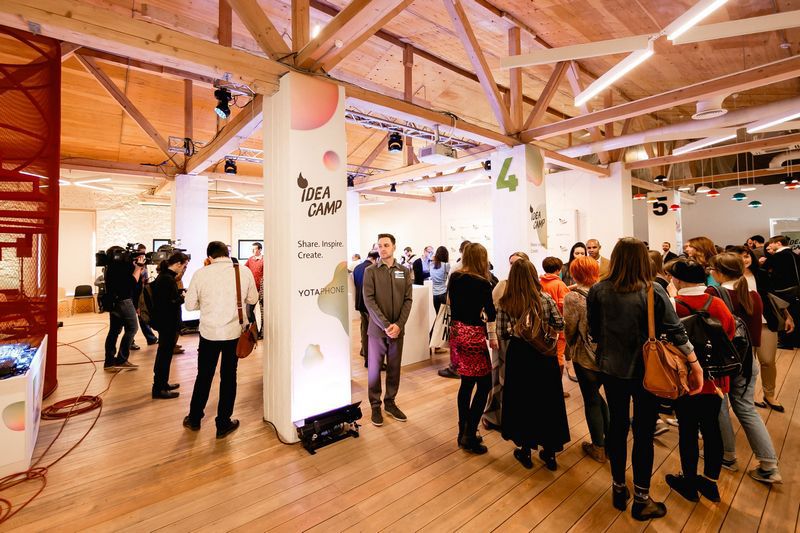
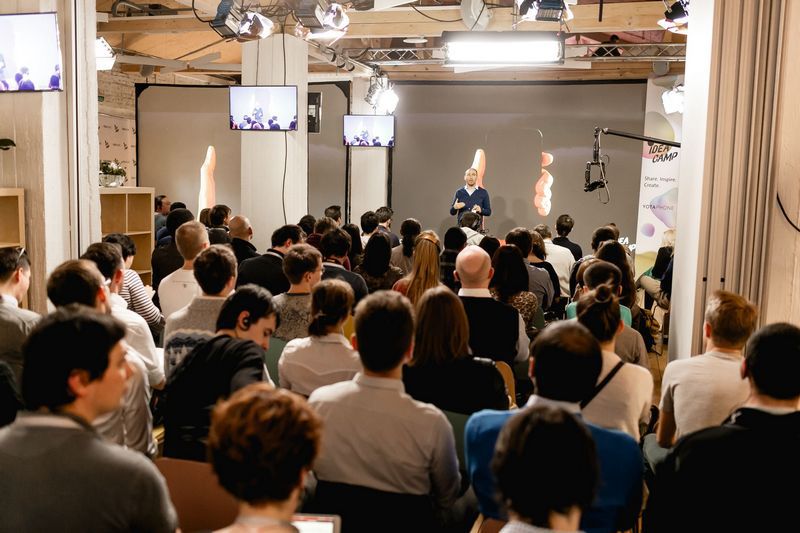
On March 27, at the Garage Education Center (Gorky Park, Moscow), we managed to gather under one roof for the whole day a community of people who are not indifferent to the future of devices and innovations. We decided to tell them the details about our projects, listen to the opinions of invited experts and discuss what the near future of mobile devices will be.
The program began with a press briefing, at which members of the press asked questions to Vladislav Martynov, Daniel Sieberg and Tim Olsen. Most of the journalists were interested in, of course, details about YotaPhone smartphones and Yota Devices company's development plans. Also considerable interest was caused by how YotaDevices sees its audience and place in the market.
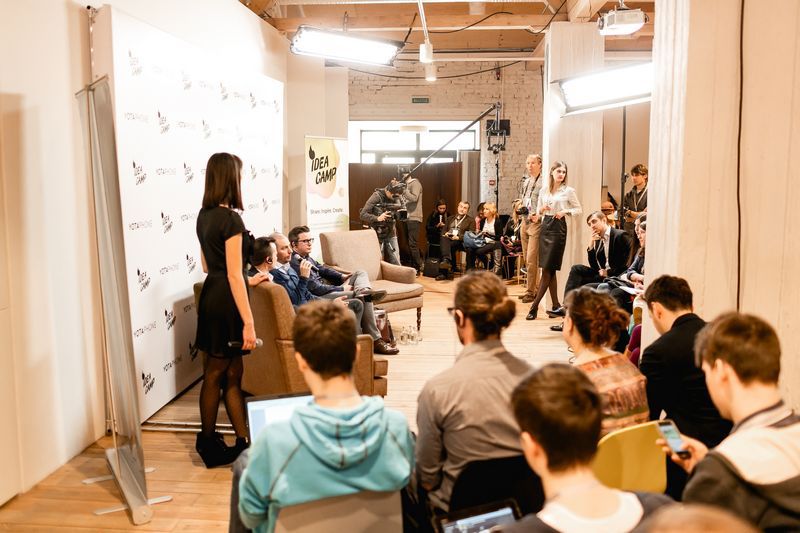
Curriculum Vitae:
Vladislav Martynov, General Manager Yota Devices. Our manager has worked in IT for over 20 years. Most of the time, Vladislav held senior positions in various international companies, including PepsiCo, Microsoft, Navision, SAP. He has successfully launched a number of startups.
Daniel Sieberg, futurist and information technology expert from the United States, author of Digital Diet . Currently, he is the senior marketing manager and Google spokesman. Daniel’s responsibility includes managing and overseeing the development of brands owned by google corporation and media relations.
Tim Olsen, crowdsourcing specialist, Ph.D. (defended his thesis at the University of Georgia), lecturer at the University of Arizona and Georgia. Tim's professional interests include crowdsourcing, microsourcing, distributed services, and business process management.
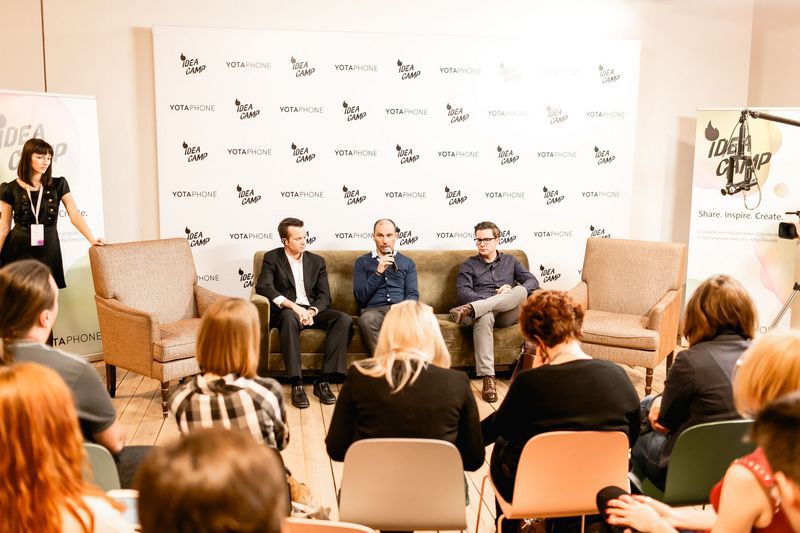
From left to right: Olsen, Martynov, Seeberg.
After the press briefing, the official opening ceremony of the YotaPhone Idea Camp took place. Vladislav Martynov was the first to take the floor. He reminded all those who had gathered about the main feature of YotaPhone smartphones - the second screen on E-Ink. The colorful and illustrative examples demonstrated a variety of ways to use the second screen, which not only provides additional convenience, but is able to radically change the users' perception of what the future smartphone should be.

The next one was Daniel Seeberg. He spoke about the results of his observations during trips to different countries. How smartphones influence modern society, including socially; what are the current habits of using smartphones in different countries; What are the trends for further development in the field of gadgets. One of the curious facts cited by Daniel: today people are so addicted to their smartphones that about 10% of those polled said they were ready to interrupt sex to answer an SMS or an incoming call. Not to mention the fact that because of the gadgets, we forget the art of conducting a conversation: up to 35% of respondents prefer to look for information in a smartphone, rather than asking others. And many more other statistical facts led Daniel. He also gave some practical advice on how not to allow gadgets to adversely affect our personal life and social ties. That is, how not to make your life completely dependent on electronic "toys". I must say that he advised, including on the basis of his own experience.
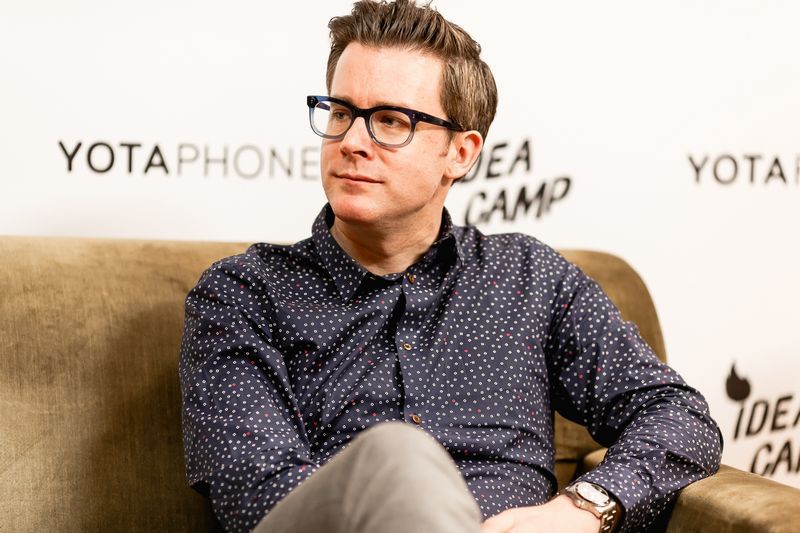
Next, take the floor Tim Olsen (Tim Olsen). He spoke about the history of the emergence of such a phenomenon as crowdsourcing, described the largest resources on this topic, and also gave examples of the use of crowdsourcing and its importance in creating modern competitive products. Overall, Tim's performance was more scientific and academic. Apparently, his long-term research activity has an effect. Nevertheless, Tim's speech was no less interesting than previous speakers.
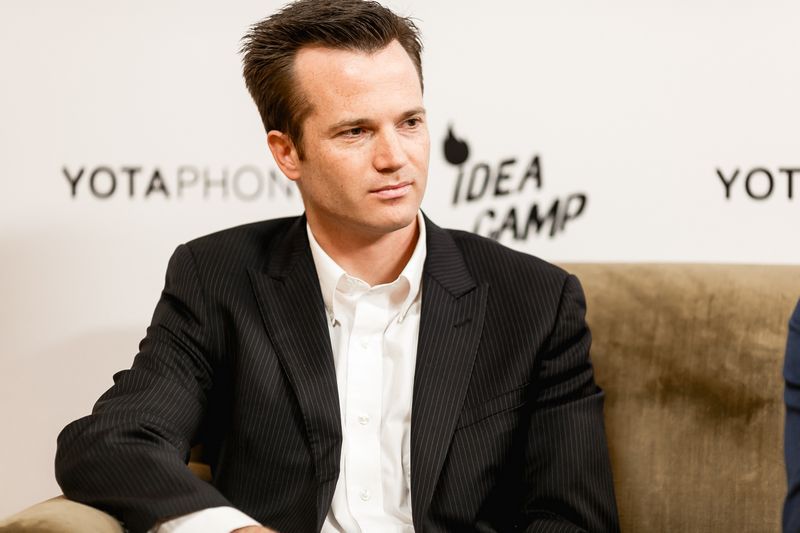
The final part of the project was the opening of workshops under the leadership of Dmitry Karpov , the curator of the program "Design in an interactive environment" in the British School of Design. Dmitry's rich experience, behind which a lot of joint projects with Artemy Lebedev and Yuri Grymov, and his ability to work with a “mixed” audience allowed not only to “hold” the attention of the event participants who were tired in the evening, but also to involve them in the creative process.

All guests were divided into groups. Each group was engaged in inventing improvements and new ways to use existing YotaPhone smartphones, as well as features and capabilities for next-generation smartphones. In other words, guests could make their proposals for modernization and development, as well as dream up about the future.

Despite such a diverse team, after 10 minutes, people were involved in the process. At first, it was somewhat constrained, and then discussions and debates were going more and more actively; one after another, sheets of paper were painted and scribbled, plasticine dispersed like hot cakes.

Our guests invented new programs, accessories and smartphones. The range of ideas was simply amazing: from small software improvements in existing smartphones to creating completely insane devices of the future. "Garage" very quickly turned into a real creative workshop, its halls were filled with quite tangible energy. It was interesting to observe how the same ideas occurred to different groups, independently of each other. It is in such situations that the true needs of people are revealed, from the expectations of certain opportunities from gadgets.
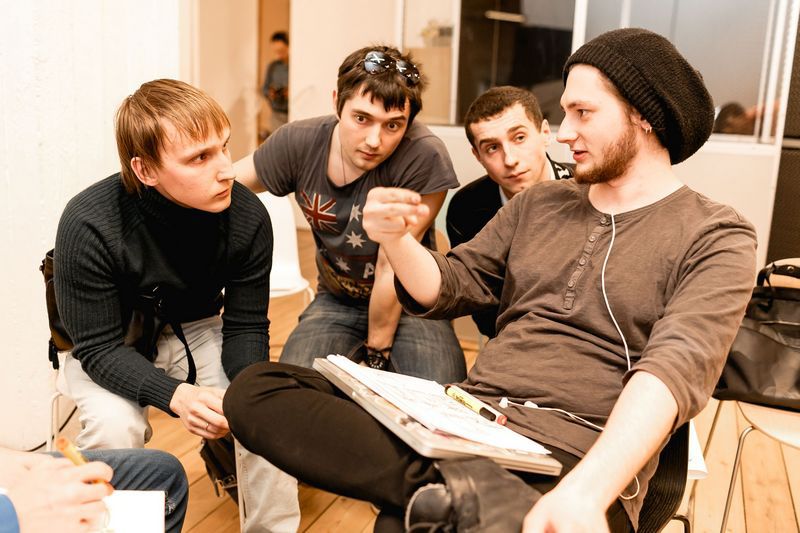
After a three-stage selection of the proposed projects, the winners were selected, who received valuable prizes: YotaPhone smartphones, memorable awards and various souvenirs. However, the best reward for the winners, it seems to us, will be the possibility of implementing their ideas in new generations of YotaPhone smartphones.
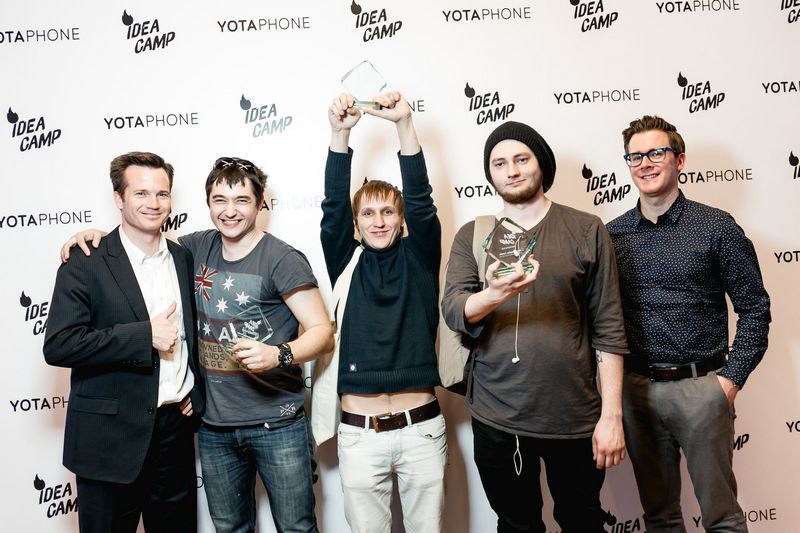
Conclusion
Today we only briefly told you about this interesting event. In the near future, David Seeberg and Ken Olson will deliver speeches on our blog, as well as a story about the most interesting projects proposed by the guests of the opening YotaPhone Idea Camp. Including you learn what ideas won prizes.
What intermediate results can be done now, after the end of the first event, which took place as part of a large project to work collectively on new ideas and improvements?
First, we saw a high creative potential among the participants. It is surprising that even people far from design, who do not always have technical education and engineering degrees, were able to offer very unusual solutions (we will tell about them later). And this means that our main idea, in fact, is correct: in order to offer something innovative, it is not necessary to have three higher educations or many years of experience as an engineer-developer behind them.
Secondly, we managed to inspire practically all the participants of the event with our creative energy. It's amazing how the templates break, the communication boundaries are erased and the characters of people who are immersed in working together on something interesting and exciting are revealed. To create such a “nutritive” environment in which everyone would feel part of the overall creative process, and will be the main task for our subsequent activities within the framework of this project.
Thirdly, even after the event was over, many people still had interesting thoughts that could “crystallize” into something more meaningful the next day, or later. Therefore, the medium will be not only offline, but also with a continuation in the form of online activities, in which you can continue (consolidate) what was discussed live.
We will be glad to see you all as part of our project!
Source: https://habr.com/ru/post/217687/
All Articles